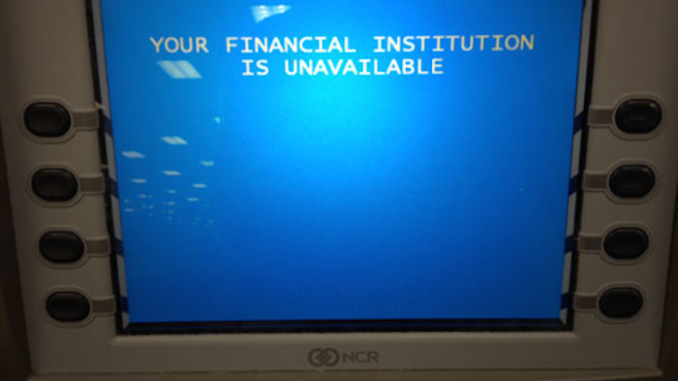
As major banks across the United States prepare to make it much more difficult for customers to gain access to their own cash, JP Morgan have begun limiting cash withdrawals at ATM machines.
Citing “criminal activity” as their excuse, the bank say that the withdrawing limits will affect all of their ATMs across the country:
The bank said there doesn’t appear to be fraud involved. But partly due to heightened regulatory scrutiny, banks are paying more attention to large cash transfers that could be a sign of money laundering or other types of shady activity. Typically, the card-issuing bank sets withdrawal limits, not the bank owning the ATM.

BYPASS THE CENSORS
Sign up to get unfiltered news delivered straight to your inbox.
You can unsubscribe any time. By subscribing you agree to our Terms of Use
The move by the largest bank in the U.S. doesn’t affect J.P. Morgan Chase’s own customers, whose maximum daily withdrawals are set depending on the client’s account type. The bank has seen high-dollar withdrawals at both new and old ATMs, said bank spokeswoman Patricia Wexler.
J.P. Morgan Chase’s change last month affects roughly 18,000 automated teller machines nationwide and followed an interim step earlier this year limiting noncustomer cash removals at $1,000 per transaction. The earlier move was made as a temporary fix while the bank could make software changes to roll out the more stringent daily limit, Ms. Wexler said.
She added that the bank “felt it was prudent to set withdrawal limits on all of our ATMs” after identifying some large cash withdrawals from noncustomers.
Shtfplan.com reports:
In 2015 we warned readers to divest some of their assets out of bank accounts for this very reason, noting that bank glitches and arbitrary holds would begin to affect more and more depositors.
And while the recent move by JP Morgan Chase appears to only affect non-customers, a recent report indicates that the Justice Department has advised bank tellers nationwide to keep any eye out on cash transactions.
Suspicious activity, which by the government’s definition is as little as $3000, should be reported to law enforcement and under existing guidelines police can then seize those funds without charge or trial:
“[W]e encourage those institutions to consider whether to take more action: specifically, to alert law enforcement authorities about the problem, who may be able to seize the funds, initiate an investigation, or take other proactive steps.”
After the massive bailouts required to save the system following the crash of 2008 banks and regulators worked together to ensure that all deposit accounts in the United States are no longer the property of depositors, but rather, the banks themselves.
All customer funds in the United States are now the legal property of JP Morgan, Goldman Sachs, BNYM, or whichever megabank is the counterparty on the loans the FCM or depository institution takes out in order to fund its mega-levered proprietary in-house trading desks.
In a recent interview intelligence insider Jim Rickards discusses this recent trend and provides insights into how susceptible the banking system is to not just cyber warfare or power grid failure, but confiscation in the form of bank bail-ins or outright government seizure.


